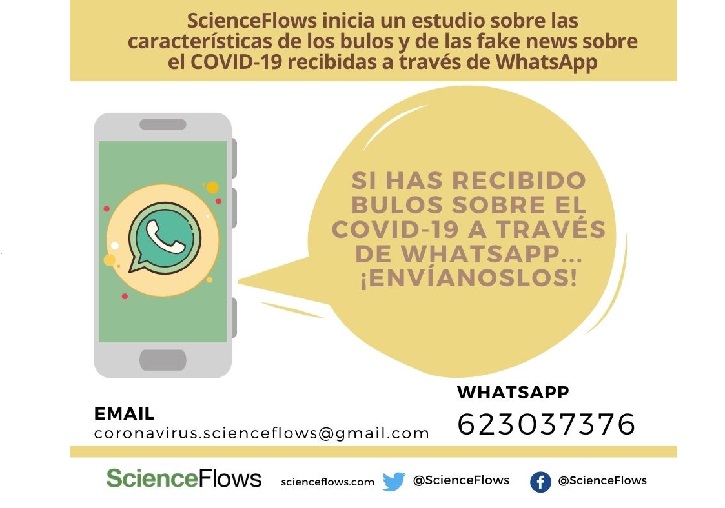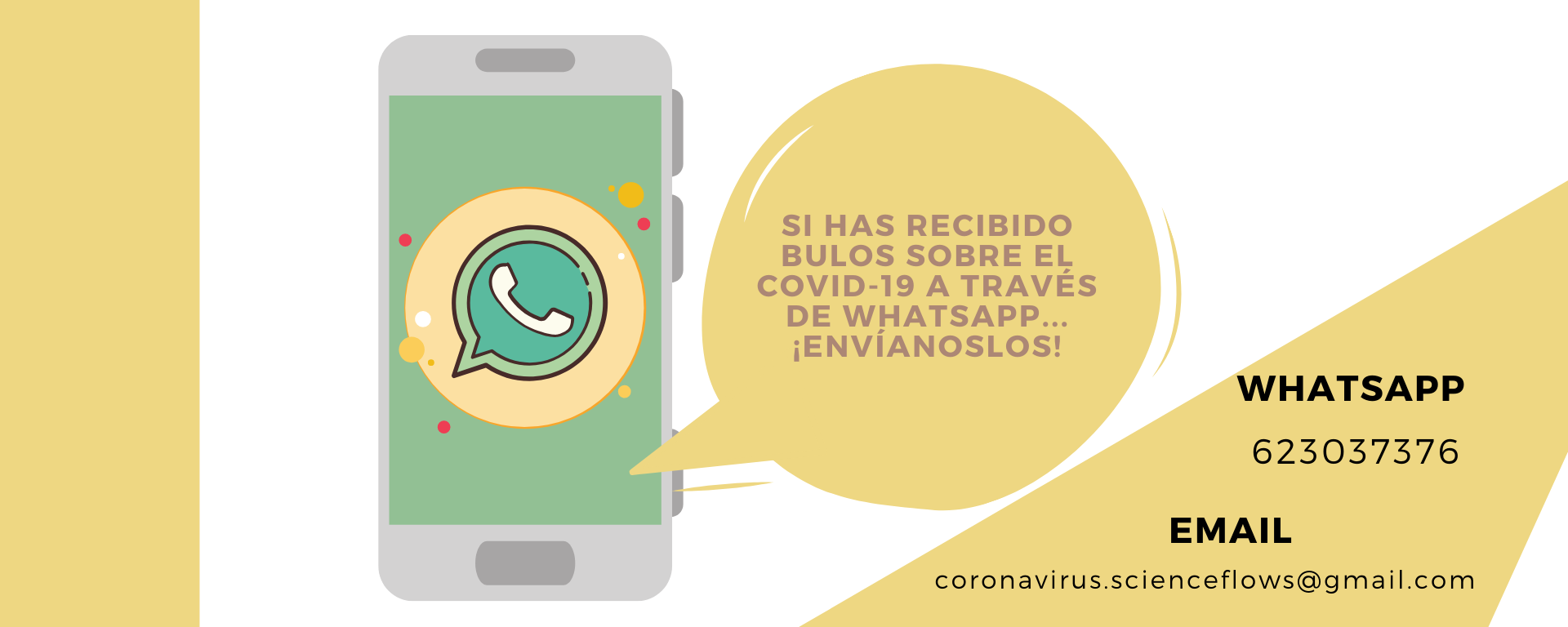The ScienceFlows research group, which works on public understanding, social perception and the dissemination of science, has started a study on the characteristics of hoaxes and fake news about COVID-19 that arrive via WhastApp. The SINC Agency, Maldita Ciencia, Salud Sin Bulos and the Association to protect the sick from Pseudoscientific Therapies (APETP) participate in the work, framed in the European project No Rumor Health aimed at allowing citizens to differentiate whether the news they receive via social networks are true or false.

Since the President of Spain, Pedro Sánchez, announced on Saturday, March 14, the decree on the State of Alarm throughout the country, different hoaxes and fake news about COVID-19 have been disseminated and propagated via WhatsApp. To carry out this study, an email account has been enabled (coronavirus.scienceflows@gmail.com) as well as a WhatsApp number (623037376) to which citizens can send false news or hoaxes that they have received from a known person to via this messaging channel. The analysis period will range from when the alarm decree was activated (March 15) until it ends.
“Our object of study are the text threads, the videos and the audios about the coronavirus. We will not study memes, or photos, or videos, or humorous montages, because the objective is to reach those fake news that are received as if they were true”, said Carolina Moreno, Professor of Journalism at the University of Valencia and principal investigator from the ScienceFlows group, which also includes research staff from the Centre for Energetical, Environmental and Technological Research (CIEMAT), the ESIC Business & Marketing School in Valencia, the Autonomous University of Madrid, and the University of Otago (Dunedin, New Zealand).
Rumours and fake news may refer to conspiracy theories about COVID-19; people who say they know what is being done inside hospitals; or news that are not based on scientific evidence, such as the dissemination that ibuprofen was harmful for COVID-19 infection; or that Italian doctors are euthanising COVID-19 infected patients. News about fines, municipal factions or false decrees from the autonomous governments will also be studied.
With the analysis of this material, ScienceFlows wants to know what discursive patterns are in the videos (the study of verbal and non-verbal language), in the audios (the identification of the issuer, the tone of the message and the use of vocabulary) and in text threads (terminological analysis and fictional elements).
ScienceFlows website: http://scienceflows.com/
Images:
.jpg)











